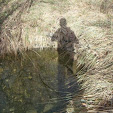
Closing my eyes, I’ve seen some horses
Running, running
Towards the sun
Outside my eyes, they are embracing
The sea, the sea
‘till to the sun
This is my prayer beside the sea
It’s a prayer just bearing in me, in me, in me
But it’s going outside to me, to me, to me
It’s the power of the sea
Something I cannot speak
And I can only sing
Into my mind, just for a moment
No plans, no plans
Can now be built
Into a wave, I find all senses
I need, I need
For all the life
This is my prayer beside the sea
It’s a prayer just bearing in me, in me, in me
But it’s going outside to me, to me, to me
It’s the power of the sea
Something I cannot speak
And I can only sing
And the last bath, it’s such a challenge
Because, because
Of the sunset
I’ve understood, the futility of
Every, every
Counting of the time
Punta Corvo (Montemarcello - Sp) - 25th August 2010









